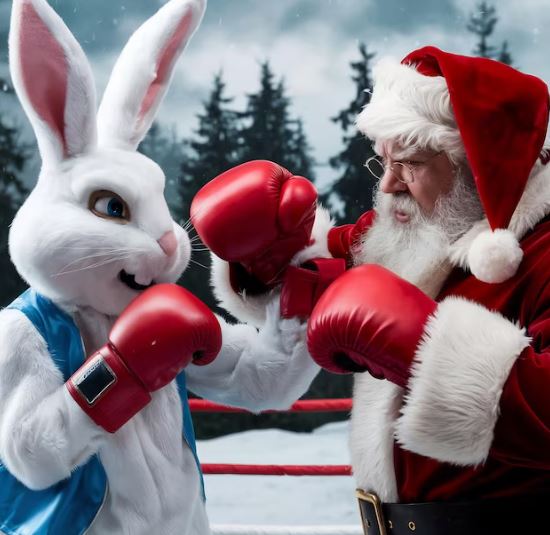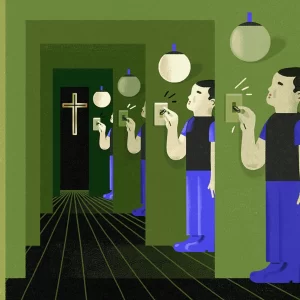When I was a kid, Christmas was always my favorite holiday. It was pure magic. I remember how each year seemed to bring a white Christmas—a wonderland filled with snow, breaks from school, joyous songs, and heartwarming TV specials. I marveled at the idea of Santa and Rudolph, the twinkling decorations, and the hustle and bustle of getting a Christmas tree. Shopping at the mall, unwrapping gifts, festive family gatherings, and the warm glow of the nativity made it all so enchanting. To top it off, just a week after Christmas, we celebrated New Year’s! My dad used to say, “Christmas is for kids, but New Year’s is for adults,” and as a child, I couldn’t have agreed more. Sure, there were other special days like Valentine’s Day, Easter, and Halloween, but Christmas felt like home.
Now that I’m over 50, Christmas still holds a special place in my heart. However, as a Christian actively exploring the depths of my faith and striving to live it authentically, I’ve experienced a shift in my perspective. Christmas continues to be joyful, but it’s no longer my favorite holiday. Easter is. When I speak of Easter, I’m not referring to fun little egg hunts, cute bunny rabbits, or tasty candy treats. I’m talking about the profound hope that Easter infuses into my soul. Hope. It is the ultimate gift given to humanity by the greatest gift-giver in history. Through Jesus’s selfless sacrifice, the door opens to unparalleled gifts of love, faith, and eternal life in God’s presence. Viewing Easter through the lens of maturity, nothing else on the calendar compares.
The Bible speaks of Easter through the pivotal event of the Resurrection. 1 Corinthians 15:14 underscores its significance: “And if Christ has not been raised, our preaching is useless and so is your faith.” The resurrection is the cornerstone of Christian faith, symbolizing the triumph over death and the promise of eternal life. In my family, we blend tradition with modern customs by having an Easter egg hunt each year—even with my adult children. We include an “empty egg” in the hunt to symbolize the empty tomb of Jesus. This simple act reinforces the resurrection event and highlights the triumph of hope over despair.
As I’ve grown in my faith, I’ve noticed that many people view Easter merely as another long weekend in spring—a time for extra cleaning or shopping. Springtime, parallel to Easter, symbolizes new beginnings. While most commercial Easter promotions focus on themes of renewal with baby chicks, bunnies, and blossoms, they often miss the ultimate renewal Jesus brings—new life through his resurrection. Admittedly, Easter is a Christian event, and we cannot expect everyone to celebrate its true meaning (just like Christmas), but I hope believers find a way to incorporate this truth into their celebrations.
When I consider how to share the true meaning of Easter, I’m reminded of a story about the famous celebrity interviewer, Larry King. A self-declared atheist born Jewish, King was once asked which question he’d pose to anyone in history. He responded, “Jesus—I’d ask if the resurrection was real… because if it is true, then that changes everything.” This reflection aptly captures the transformative power of the resurrection.
In the end, Easter isn’t just another holiday—it’s a chance to hit the refresh button on our faith and soak in the hope that comes with it. Imagine every new bloom you see this spring as a reminder of the new life we have through Jesus’s resurrection. Let’s take this time to reconnect with what Easter truly means and carry that renewed spirit with us every day. Because really, what better gift could there be than a fresh beginning and a promise that lasts forever?




